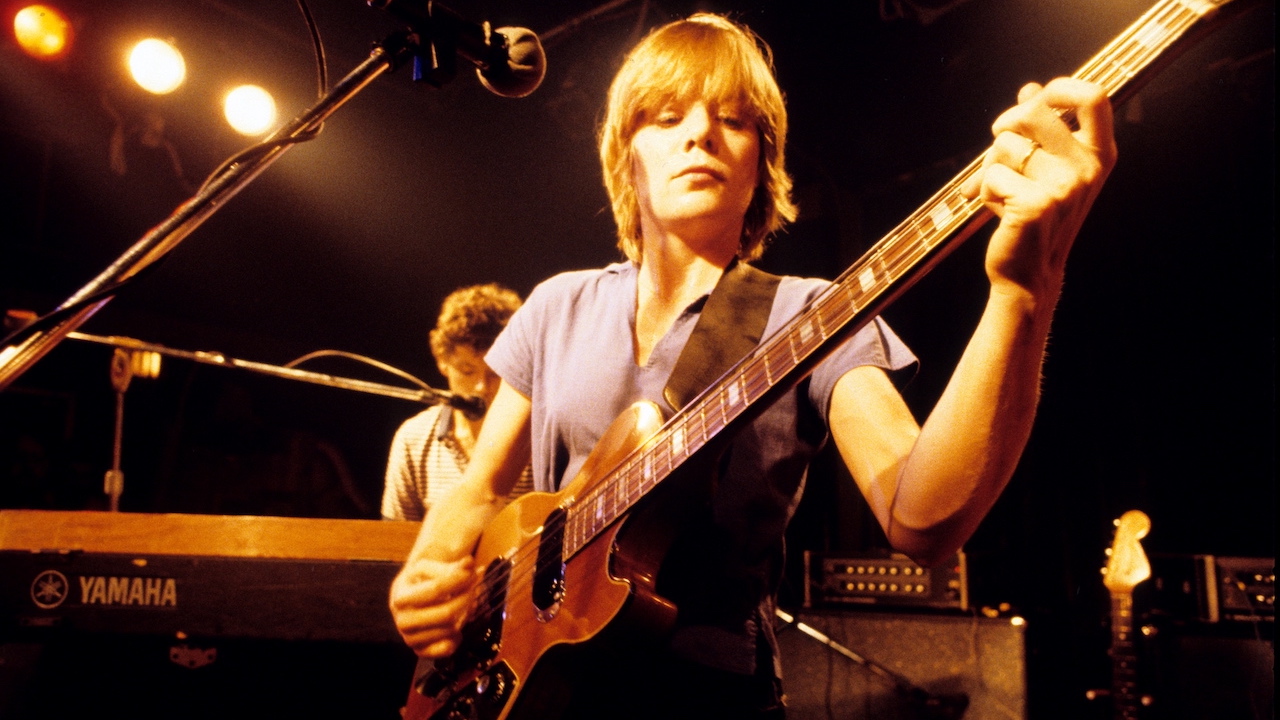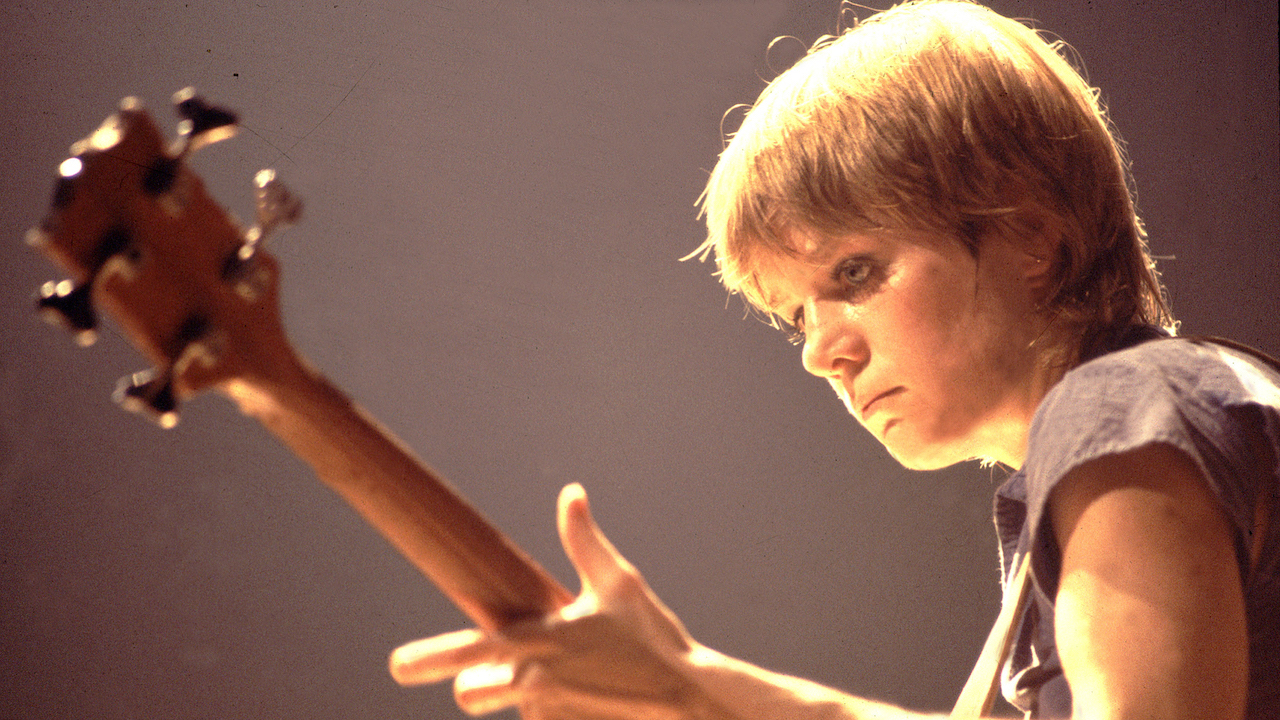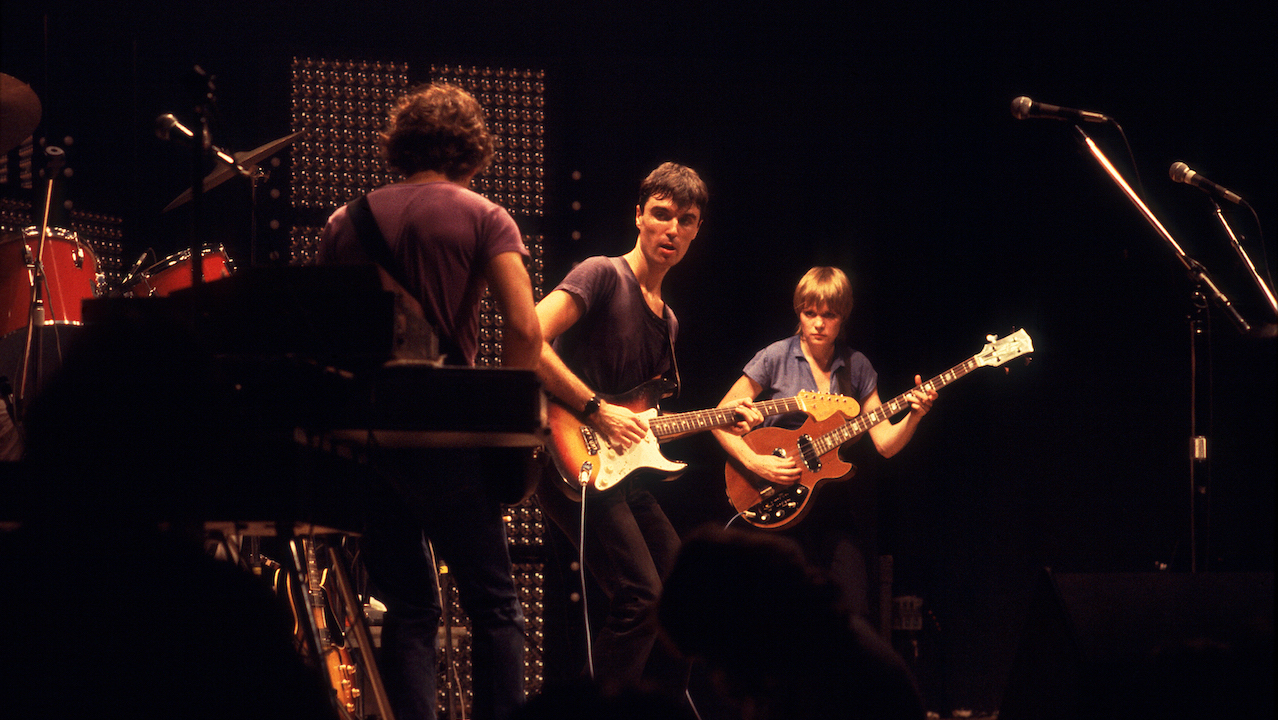Tina Weymouth: “I know Bono used me to taunt Adam Clayton when U2 were starting out”
One of the bass world’s most influential female figures talks gender stereotypes and why her small stature was “almost like a dare to boys”

As one of the funkiest bassists of the American New Wave scene, Tina Weymouth clearly had a lot more to offer the bass guitar world than just her gender. Still, she's put up with untold grief in the male-dominated arena of rock, and her survival – coupled with her onstage ascent from novice to seasoned pro – made her an inspiration to aspiring bass players everywhere. “I think you can look at me and say, ‘Wow, there's this small, small person working away at this, and if she can do it, I can,'" she told BP. "It's a punk thing, you know?”
Could it be that women play the bass differently from men? “Obviously, the bass does limit me physically,” said Weymouth. “But there are ways of getting around limitations, and my size was almost like a dare to boys. I know Bono used me to taunt Adam Clayton when they were starting out, which was terrible for Adam!”
Weymouth’s inventive playing style is all the more impressive bearing in mind that she only picked up the bass for the first time a matter of months before Talking Heads’s first gig.
“The three of us moved to New York in September of 1974," Weymouth told BP, "and within a month Chris was begging me to play bass. We all shared a loft just down the street from CBGB's; he'd go there every night looking for a bass player, but no one was interested. I'd taught myself guitar out of Bob Dylan songbooks, so playing bass in a band seemed very far-removed to me. It just didn't seem realistic. I figured I would leave as soon as they found a real bass player.”
Even during punk's heydey, few bands did so much with so little. When a former marching band drummer, a super-eccentric singer/guitarist, and a neophyte bassist – all former classmates at the Rhode Island School of Design – began gigging as Talking Heads in 1975, they'd already come farther than many had predicted.
The following interview from the Bass Player archives took place in 1996, eight years after Talking Heads’ final album, Naked.
What do you remember most about the band's early days?
"I remember how committed we were, but also how tough it was. We lived on pasta and cottage cheese. We had no shower and no hot water – just a hot plate and a mini fridge. Our big refrigerator was the window ledge. The toilet was down the hall, and I was the only one who ever cleaned it. But it never really got clean, so eventually I just spray painted it silver, à la Andy Warhol. The whole setup was really unsanitary and dangerous and weird, but I think being absolutely bone poor is the most motivating thing in the world. We were so committed; we rehearsed seven days a week."

Even though it must have been a struggle, the three of you seemed to gel pretty quickly.
"I think so. I'd been interested in David's and Chris's playing since the Artistics days, so I was already familiar with their sound, and I loved it. David's guitar playing was very brittle – almost African – and he sang really high. He's left-handed but plays right-handed guitar, so that separates his speech from his rhythm-guitar phrasing in his brain. I immediately saw he was doing something different – at least compared to Bob Dylan! Then there was Chris, who played like a soul man – sweet and solid, with that rock-steady kick and snare. And yet his hi-hat was always pushing and pulling the beat."
His snare can be almost military at times.
"Well, he is the son of a general. But he never wanted to be a soldier; he just wanted to play drums."
So you were completely new to bass when you joined Talking Heads?
"Oh, yes. I began putting five dollars a week down on a bass at We Buy Guitars on 48th Street, and when I finally paid it off, Chris and David began working with me. Chris was very encouraging and supportive. And David was marvellous in that he was so hard on me; he had no patience whatsoever."
How did you first approach playing alongside David's quirky guitar style?
Get The Pick Newsletter
All the latest guitar news, interviews, lessons, reviews, deals and more, direct to your inbox!
"Trying to understand what was going on in David's head was never easy, and he was never able to articulate what he was doing. So I just broke down everything he did into very basic components – sections and segments – and then pieced them back together like a puzzle. I figured if he was going to play these really edgy parts, I should do something contrapuntal. I didn't see the point in just playing root notes in unison, especially since I felt there was something missing in the midrange of our little trio."
Maybe that's why some of your cooler early lines sound more like trombone parts than conventional basslines.
"Yes, there was definitely an attempt to create things that were like horn parts. But that was because I was listening to lots of R&B. And with only three people in the band, my parts always needed a lot of melody. David's voice was bare – his words and expressions were really interesting, but his voice would stretch out into this strange whine. Only later did we discover he has a beautiful baritone."

You developed a knack for catchy, repeating figures, which became a real trademark.
"My earlier playing was busier, although still quite minimal. Then I got even more minimal when we put together the big band in the '80s, because I had to. It was often just a matter of necessity. And you have to understand we made the first two records over a four-year period, from 1974 to '78. After that, we would tour for eight months a year, and then we'd write and record really fast for two months so David would have time to come up with lyrics. There were no vacations; it was always playing, playing, playing. So there just wasn't time to go through and create five or six sections per song."
You inspired a generation of bassists who'd been led to believe bass was not for them.
"Thank you. I'm really not so great. And they should all be just as grateful to Chris because he pushed me, and to Suzi Quatro and Carol Kaye, too."
Kim Gordon once touted a belief that a woman's instinctively supportive nature lends itself to bass more than, say, aggressive lead guitar.
"That's a very interesting point of view. I don't know that it holds for all individuals, but it says so much about Kim, as a person and how she feels about her band. I think women are nurturing and supportive in bands, and as for bass, your role is totally one of support. That's why I find it obnoxious to sing and play at the same time, because when I'm singing it doesn't feel like the bass player is there for me. It's just not the same."
- Nick WellsWriter, Bass Player
“I asked him to get me four bass strings because I only had a $29 guitar from Sears”: Bootsy Collins is one of the all-time bass greats, but he started out on guitar. Here’s the sole reason why he switched
“I got that bass for $50 off this coke dealer. I don’t know what Jaco did to it, but he totally messed up the insides!” How Cro-Mags’ Harley Flanagan went from buying a Jaco Pastorius bass on the street to fronting one of hardcore’s most influential bands










